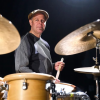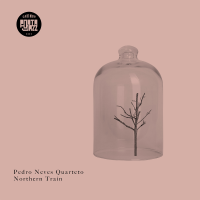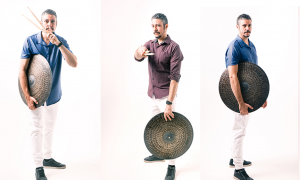Home » Jazz Articles » Interview » Greg Osby: Saxophone “Griot”
Greg Osby: Saxophone “Griot”
GO: It's been an interesting ride of late. I haven't had a personal recording release since 2008. I've been exceptionally busy organizing and running the label, and have been more active producing, teaching and making guest appearances. I'm on the road a lot, but now I'm doing many so many gigs as a special guest that frankly, I get offered a lot more as a special guest than I do for my own bands! So it's time to step back from that. Also, I'm involved with promoting and coordinating over 50 artists who record for my label, Inner Circle Music. In addition, I'm working on a book, which is going very slowly. And, of course, I never stop composing and working on new ideas. So I have a lot on my plate.
In the next month or two, I'll begin production on my next CD project. It's time to get busy again. The emphasis will be internal development of the compositions themselves, and not necessarily offering lengthy improvisations. I'll be auditioning yet another batch of young musicians to take the journey with me. I'm designing it to be something that is musically captivating and technically challenging but something that the general public can also enjoy. It's been a long time coming.
AAJ: Let's talk a bit about Greg Osby when you're not doing music.
GO: I collect things! I attend auctions, flea markets, thrift stores, yard sales, garage sales, and estate sales. I look for hidden gems and rare finds. I restore them and often give them as gifts. Right now, believe it or not, I'm on a kick of buying vintage suits, hats, and silver jewelry.
AAJ: Miles Davis did that too.
GO: I go for suits from the late 1950s to the mid-1960s. Vintage and classic suits. I like the thin ties, the skinny bow ties, tip clips and pins, cufflinks. I like those looks and vibes. I favor musicians who dress more elegantly and look like professionals. Many dress far too casually for my tastes. Performing is about the whole package, a complete presentation. People don't come to see our shows with blindfolds on. Miles Davis, Duke Ellington and all of our predecessors dressed really nicely for their performances. You absolutely will not find a photo or video of them in public or on stage disrespecting themselves nor the art form by wearing "street clothes" in front of a paying public. Not to mention, they did so in an effort to emphasize the fact that they were indeed special, and wanted to be treated with respect. However, I realize that this just isn't a priority issue for many musicians in this "post hip hop" generation. Being casual and comfortable is more of a concern than having a dignified and prepared appearance. But then, it becomes easy to understand why some laypersons don't appreciate the music as an institution of value or high regard. I wouldn't hire a lawyer or go to a doctor if they looked like some musicians that I know. But my expectations are different and it's only my opinion.
AAJ: That's a good point. Today, many jazz guys wear a cheap shirt open at the collar for their gigs, blue jeans, or something like that. By contrast, the Modern Jazz Quartet, in particular, wore the formal attire of classical musicians.
GO: Again, I can't argue with anyone's right of choice. One of my blogs is called Jazz Bums. I would agree that the quality of the music itself is of primary importance, but I think we need to be a bit more respectful in how we present ourselves. We expect anyone in a professional capacity to be properly attired for the job. Why not musicians?
AAJ: What's your family life like?
GO: My family is all over the place, St. Louis, Chicago, the South, west coast. They're not into jazz so much, so I can't relate to them fully on that level, and that's OK. I'm certain that they appreciate one of their own following their muse and sticking with it. Most of my friends are musicians or are in the arts, but I also try to have friends who are into other careers—outside of the business. It keeps me balanced and in touch with what people really think about my music! We talk a lot about cooking, wine, travel, real estate and culture. Absolutely no sports, politics or religious discussions is tolerated. I don't enter in those types of exchanges because arguing over those issues is futile.
AAJ: What about your spirituality? What's your philosophy of life? How do you deal with the big picture?
GO: My ideal logo for life would be an outstretched palm with some seeds in it. Perpetual possibilities. My goal is to continue growing. I'm always looking for new information and resources that fascinate me. There's always this need to demystify and decrypt things I never knew about. Then hopefully I can use what I learn in my own work. Some of it may be very subtle, but there's a great deal that goes into my musical recipes and I enjoy the notion that we all may have different points of view. I'll hear people out about whatever their opinions may be.
AAJ: Do you have a particular spiritual practice or religious faith?
GO: I'm a devout Osby-ist! I'm a practitioner of Osby-ism! [Laughter.]
AAJ: Would you say that you're a seeker after truth?
GO: I do tend to peel back layers in search or deeper meaning or shrouded information. I've investigated many of the major world religions, mostly as a philosophical pursuit. I was a practicing Buddhist for a number of years. I've endured intensive studies in Christianity, Hinduism, Taoism. I study them for personal enlightenment or to attempt to become a better human being and to try to be as giving and open to people as possible. I try not act negatively towards people or to be unnecessarily confrontational or oppositional. I prefer not to practice any particular religion on an ongoing basis, because I find them to be very absolute and the many mystical and abstract references aren't in accordance with my idea of personal growth and development.. Subscribing to ideologies that are inflexible or are intolerant of others' beliefs doesn't fit my way of thinking. But, more power to anyone who finds focus, grounding and peace in them.
AAJ: Do you ever use world mythology or cultural lore in your music?
GO: Definitely. I was in Africa several months ago, and I met many Griots and Chiefs in places like Ghana and the Ivory Coast. I visited the towns and they did libations and induction ceremonies. They gave us names of significance and told us a lot about the spirits and ancestors. It was humbling, incredible, and enlightening in many important ways. However, I'm wary about blatant expressions of unchecked or irresponsible representations of spirituality in my music. I classify that to be reckless and it's not solely what I'm about.
AAJ: One final question. What advice and guidance would you like to offer to young jazz musicians?
GO: "Lifestyle" is a key word here that should be heeded. "Jazz" may also be a word to be more carefully considered. Many young musicians today emerge from universities and conservatories not fully knowing what they're going to face in their careers in terms of obstacles, challenges or even opposition. I would suggest that before they make a move, they should pay repeated visits to wherever it is that they seek to live and work. Check out the climate, the seasons, the available work opportunities, the lifestyle, transportation, the municipal layout, etc. Some areas are more competitive for musicians and artists, some, not so much. New York, for example, is fiercely competitive and is home to thousands of superbly talented musicians, many of whom are out of work. The audiences at jazz clubs can sometimes filled with unemployed virtuosos!
Young musicians should also familiarize themselves with the music business as such. A lot of musicians emerge from college with no social skills, no ability to communicate with an audience, no idea how to negotiate a contract, how to form and direct a band. They have no leadership skills. They don't know how to conduct themselves at gigs. Some don't have much or any live performance experience outside of school ensembles. They should know budgeting and simple economics. They need to know how to work with diverse forms of music and ensembles, how to compose for vocalists, TV, commercial jingles, dance choreography, etc. They also need to know how to use computers, music software and how to do studio recordings: mixing, microphones, etc. Everything!
You've got to wear a multiplicity of professional hats these days and know a little or a lot about many things. You can't just expect to take a metropolis by storm! You need to have a several irons in the fire. You might also have to find and hold down a side job outside of music until your career gains momentum. It's a reality that many artists have and will face.
AAJ: Sounds like you're telling them to keep their feet on the ground, but be imaginative, creative and resourceful. It's tough making a living for a musician today. You really have to plan your career and have clear goals. By the way, just so they know, are you currently taking students?
GO: I don't have a current affiliation with any university, conservatory or music school. But I always entertain a steady stream of private students, mostly international, as it allows me much more scheduling flexibility and I'm not expected to adhere to a dated or pointless curriculum. I prefer to focus on specific problems that each student is facing, as opposed to reviewing material that they can already execute well or have no interest in. My idea is to get to the root of the issues and address them constructively so that they can focus and excel as quickly as possible.
Tags
Greg Osby
Interview
Victor L. Schermer
United States
Pennsylvania
Philadelphia
St. Louis
Inner Circle Music
Steve Coleman
Charles Mingus
duke ellington
Thelonious Monk
Shirley Horn
Betty Carter
Logan Richardson
Jaleel Shaw
ambrose akinmusire
Adam O'Farrill
Walter Smith III
Melissa Aldana
Ben Wendel
Troy Roberts
Aaron Parks
Christian Li
Victor Gould
Matt Mitchell
Gerald Clayton
John Chin
Matt Brewer
Linda Oh
Ben Williams
Lage Lund
Mike Moreno
Sara Serpa
Gretchen Parlato
Eric Harland
Jonathan Blake
Tommy Crane
Marcus Gilmore
Fred Irby III
Kelvyn Bell
Charlie Parker
Nina Simone
John Coltrane
Wallace Roney
Gary Thomas
Geri Allen
Donald Harrison
Walter Beasley
Jean Toussaint
Don Aliquo
Branford Marsalis
Victor Bailey
Kevin Eubanks
George Garzone
Bob Mover
Andy McGhee
Lionel Hampton
Count Basie
George Coleman
Gary Bartz
Charlie Rouse
Junior Cook
Arthur Blythe
Art Blakey
Elvin Jones
Woody Shaw
Freddie Hubbard
Tommy Flanagan
John Hicks
Kenny Barron
Camille Gainer
wynton marsalis
Cassandra Wilson
Robin Eubanks
Graham Haynes
Wayne Shorter
Ornette Coleman
Miles Davis
Don Byron
Hank Mobley
Horace Silver
John Abercrombie
Julius Hemphill
Oliver Lake
Hamiet Bluiett
David Murray
Henry Threadgill
Muhal Richard Abrams
Andrew Hill
PREVIOUS / NEXT
Greg Osby Concerts
Support All About Jazz
 All About Jazz has been a pillar of jazz since 1995, championing it as an art form and, more importantly, supporting the musicians who make it. Our enduring commitment has made "AAJ" one of the most culturally important websites of its kind, read by hundreds of thousands of fans, musicians and industry figures every month.
All About Jazz has been a pillar of jazz since 1995, championing it as an art form and, more importantly, supporting the musicians who make it. Our enduring commitment has made "AAJ" one of the most culturally important websites of its kind, read by hundreds of thousands of fans, musicians and industry figures every month.























